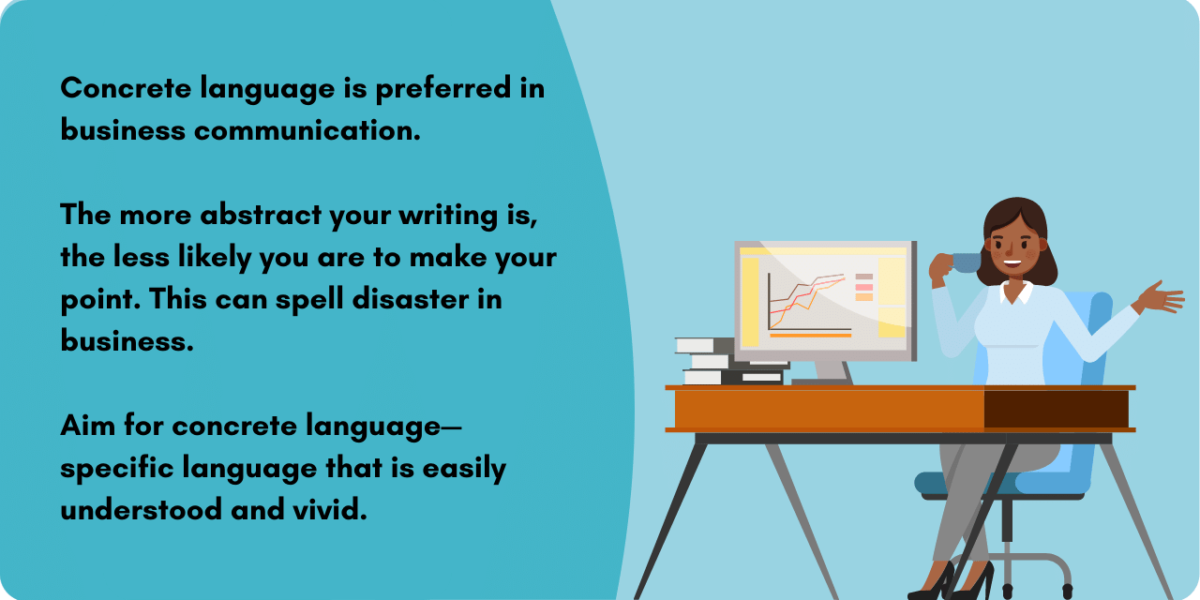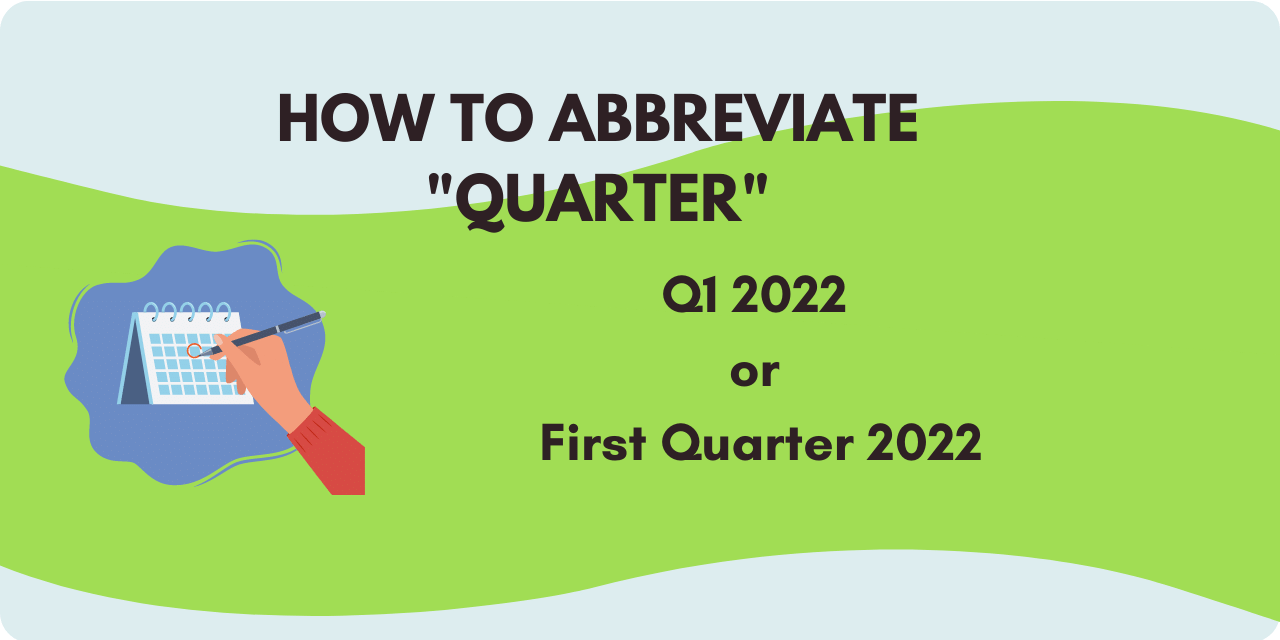When you hear the term “abstract,” what comes to mind? A painting by Jackson Pollock? And if you hear the word “concrete,” what’s the first thing you think of? A foundation? Or a sidewalk? Your brain pulled these answers quickly. Why? Because you are most familiar with these words in those settings. However, as a writer, you must be equally familiar with these terms regarding language and business communication. So, in the tug-of-war of abstract language vs. concrete language, which will emerge the clear winner?
Abstract vs. Concrete Language
Let’s breakdown the differences between abstract language and concrete language.
Abstract language:
- Includes general language and intangible qualities, ideas, or concepts.
- It is often vague and open to interpretation.
- A reader may find it hard to pin down the exact meaning.
Concrete language:
- Includes specific word usage.
- It is especially helpful in business communication.
- It is clear, compelling, and easily understood.
A skilled writer knows how to properly use and mix all levels of language, including abstract and concrete. When you can deftly implement and weave language on multiple levels, your writing becomes more interesting. And you can reach audiences on a deeper level.
Examples of Abstract Language
We use abstract terms every day. Life would get pretty boring without ideas and concepts floating around, challenging our minds to try to define them. However, when we need to give instructions, specific advice, or motivate our audience, we need to add some concrete to the mix. Failing to do so can result in misunderstandings.
Here are a few examples of how abstract language can be vague:
- Our company is looking for a flexible team player. (Flexible? For what? The office gymnastics tournament?)
- I am an experienced office manager. (Why should I believe you? You offered no examples of your experience.)
- ZYX Marketing will integrate actionable solutions. (Classic B2B marketing fluff—big words, no substance.)
Examples of Concrete Language
Concrete language is specific. It gets right to the point and removes any ambiguity. And it provides the extra details that connect your reader to your message.
Here are a few examples of concrete language:
- We build custom software that allows HR department heads to design employee manuals.
- The interviewer guidelines offer real-life examples and sample questions you can modify and use.
- The accounting department has asked all employees to submit reports using Excel spreadsheets.
Concrete language can also leave a mental impression because it connects to our senses. Like this:
- The red Toyota Corolla jerked back and forth as it went down the bumpy road. (Did you “see” the color red? Or “feel” the car jerking over the bumps?)
- The lawyer listened intently as the young woman relayed the details of the accident, wiping her tears as she softly spoke. (Could you “see” her distress? Did you picture the lawyer leaning in closer, trying to “hear” her words?)
A person is more likely to remember details of a sentence or paragraph when concrete language and terms are used. Give your reader something they can relate to, picture, or feel.

Which is Better? And Why?
Concrete language is preferred in business communication. It gives your readers knowledge about you, your company, and how you differ from your competitors. Also, it can motivate and convince people to buy your product or pay for a service. Concrete wording is powerful.
Check out the following sentences. Which one do you like better? Which one is clear and memorable?
Example 1: Our company can help you meet all your goals.
Example 2: At JLS Marketing, we offer website design, email campaigns, and posting to social media to help you turn leads into customers.
The first sentence is too abstract—it doesn’t provide any value. However, the second sentence defines who you are, what you will do, and how it will help your client. It is attention-grabbing and full of details.
Remember, the more abstract your writing is, the less likely you are to make your point. This can spell disaster in business. So, aim for concrete language—specific language that is easily understood and vivid. And avoid hiding behind broad generalizations.
Classifying Abstract and Concrete Words
Words are like kittens—they don’t stay in one place for long, they jump onto things they shouldn’t, and can be a bit naughty at times. A word may not always fall into the “abstract” or “concrete” category. At times, words can overlap in the level of abstraction and meaning. So, you may need to add context or modifiers to tweak a sentence. Look for ways to provide additional information that will give the reader a better understanding. For example:
Abstract: The supervisor felt it was a complex situation.
Concrete: The HR supervisor recognized the complexity of the employee’s allegations of sexual harassment from a co-worker.
So, to be an effective business writer, you need to understand the differences in abstract vs. concrete language. And using concrete language in business writing is the gold standard in presenting information.






